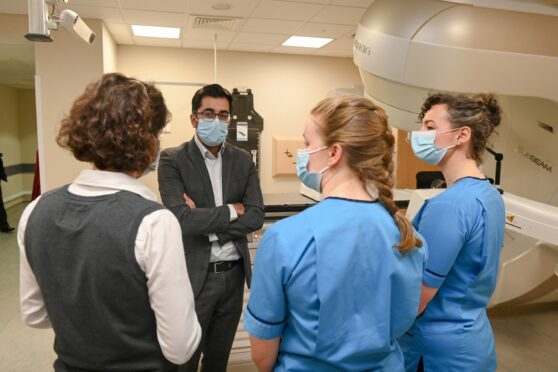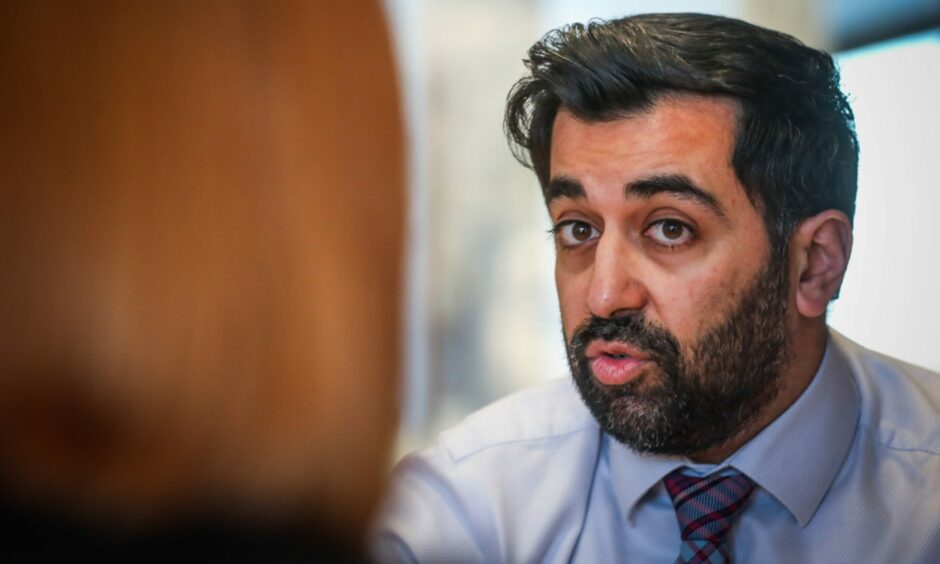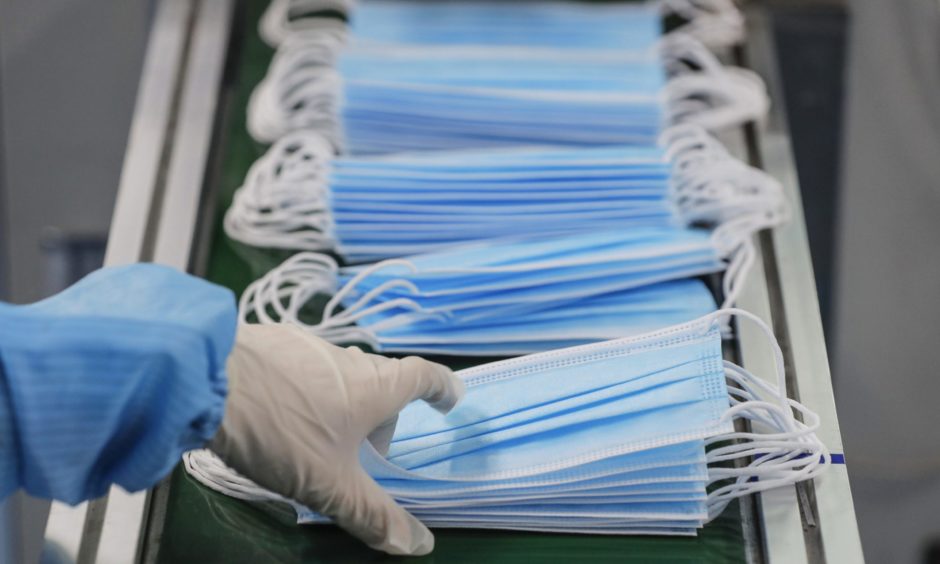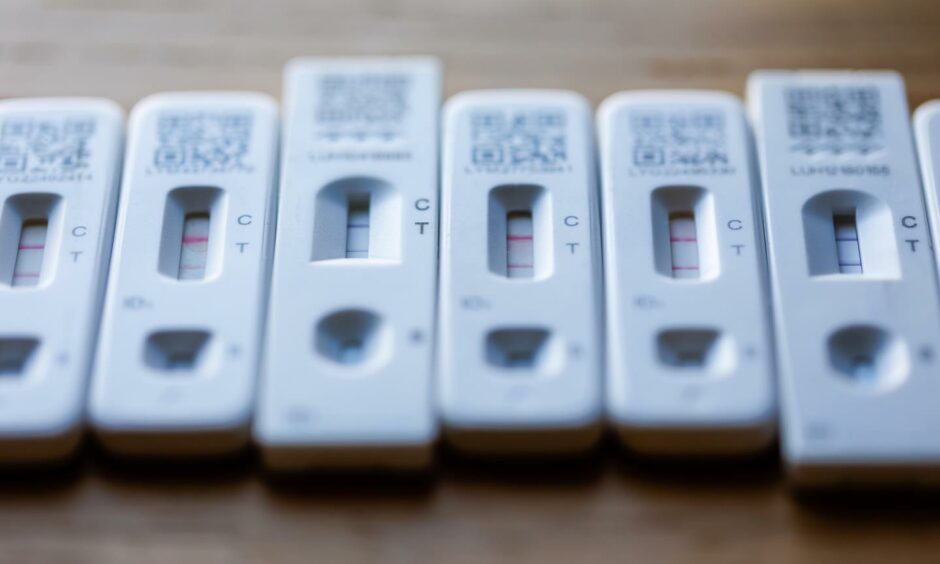Health Minister Humza Yousaf has said the knock-on effect of high Covid case rates is that urgent treatments may be “de-prioritised”.
Although Mr Yousaf hopes a stabilising picture on Covid case rates is emerging, he warned hospitals are facing there most difficult days since the pandemic began two years ago.
On Tuesday, Scotland recorded more than 12,000 cases with one in 14 people reporting a positive case number. A total of 37 deaths were announced and more than 2,000 people are in hospital with the virus.
His message comes as NHS Highland said it was facing major challenges.
The health board admitted that health services are under immense strain as staff record extremely high numbers of hospital admissions.
‘People are having to suffer’
Speaking on BBC Radio Scotland’s Good Morning Scotland, Mr Yousaf said: “It is fair to say that those I am speaking to in health boards across the country that the last weeks have been the most challenging weeks they have ever faced from the high number of Covid patients.”
Mr Yousaf said that while case numbers impacted on hospitals, he was aware that people were being asked not to come to hospital other than with life-threatening conditions.
He said: “The health service will cope. But it means making really difficult decisions in health boards about deprioritising other treatments, and sometimes urgent treatments. People are having to suffer because of that.”
“If we control Covid it will ease the pressures it will alleviate the pressure.
Appropriate to keep face coverings for ‘a bit longer’
Turning to face masks, he said: “We have lived with this for two years, and we expect people to know what to do. It is proportionate to keep face coverings for a bit longer.”
Mr Yousaf said face masks would continue to be used in schools after the Easter holidays. Explaining that as legal restrictions come to an end for the use of face coverings – public health advice would be issued.
Advice would include the wearing of masks in public places. He expected that public health advice would be followed in schools.
Testing will only be provided in a limited way in future
He said that while testing was soon to be scaled back it would continue to be in place for people in health and care settings.
He said: “We are funding testing for longer than the UK Government, and that is costing us money.
“Over the course of a financial year, you are talking about an additional £300 – £350million just doing that limited testing for health and care and high-risk settings.
“If I did more than that the money would need to be found from other services such as cancer treatments or mental health and we have to balance that up.”



